Quick tips on diet and exercise
 When trying to lose weight, it is usually easier to achieve results if you change your diet. It is also important to exercise. Just remember that in order to burn the calories that you get from eating a single candy bar, you need to walk for an hour or more.
When trying to lose weight, it is usually easier to achieve results if you change your diet. It is also important to exercise. Just remember that in order to burn the calories that you get from eating a single candy bar, you need to walk for an hour or more.
General dietary advice
Choose good, fresh raw materials and prepare your meals from scratch
Carefully study the declaration with regard to expiry date, energy distribution, content of different sugars, fat, additives etc. Avoid industrially processed foods and stick with fresh raw materials, as they provide much more vitality.
- Created on .








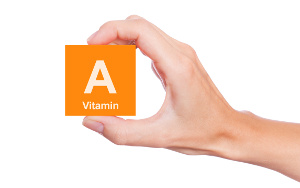



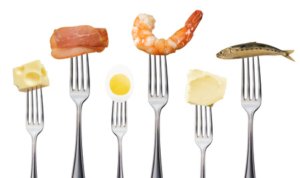 The body makes energy by breaking down the essential macronutrients, carbohydrate, protein, and fat. Even alcohol provides energy.
The body makes energy by breaking down the essential macronutrients, carbohydrate, protein, and fat. Even alcohol provides energy.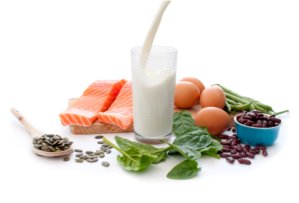 Most of the protein we consume is used to build muscle, skin, hair, and nails.
Most of the protein we consume is used to build muscle, skin, hair, and nails. Even though carbohydrates are an important source of energy for the brain, the muscles, and other organs, they often contribute to weight problems.
Even though carbohydrates are an important source of energy for the brain, the muscles, and other organs, they often contribute to weight problems.  Fructose, also known as fruit sugar, plays an overlooked role in the obesity epidemic, in elevated cholesterol, and in the development of type 2 diabetes.
Fructose, also known as fruit sugar, plays an overlooked role in the obesity epidemic, in elevated cholesterol, and in the development of type 2 diabetes.  Fats or lipids constitute an important source of energy that is especially useful for the muscles and the heart. They also help stabilize your blood sugar levels. The different fats have many other functions such as supporting cellular construction and the hormone system, immune system, and nervous system. The essential omega-3 and omega-6 fatty acids, which we get from our diet, have a particularly important role.
Fats or lipids constitute an important source of energy that is especially useful for the muscles and the heart. They also help stabilize your blood sugar levels. The different fats have many other functions such as supporting cellular construction and the hormone system, immune system, and nervous system. The essential omega-3 and omega-6 fatty acids, which we get from our diet, have a particularly important role. Proper nutrition is based on the right balance between the energy-providing macronutrients (carbohydrate, fat, and protein).
Proper nutrition is based on the right balance between the energy-providing macronutrients (carbohydrate, fat, and protein). Vitamins and minerals are essential micronutrients that we primarily get from our diet
Vitamins and minerals are essential micronutrients that we primarily get from our diet
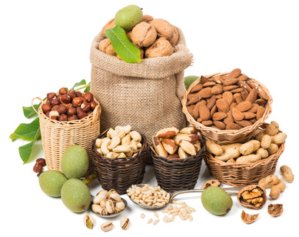 There are eight different B vitamins – thiamin (B1), riboflavin (B2), niacin (B3), pantothenic acid (B5), pyridoxine (B6), biotin (B8), folic acid (B9), and cobalamin (B12)
There are eight different B vitamins – thiamin (B1), riboflavin (B2), niacin (B3), pantothenic acid (B5), pyridoxine (B6), biotin (B8), folic acid (B9), and cobalamin (B12)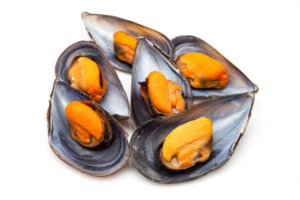 The thyroid gland stimulates cellular oxygen uptake, which has a direct impact on your metabolism. Many people have thyroid disorders without being aware of it, and there are many people who receive medical treatment for a diagnosed thyroid problem and still don’t feel right.
The thyroid gland stimulates cellular oxygen uptake, which has a direct impact on your metabolism. Many people have thyroid disorders without being aware of it, and there are many people who receive medical treatment for a diagnosed thyroid problem and still don’t feel right. "After about one week of taking the Q10 supplement I could feel a huge difference," says 23-year old Alan Piccini, who has been suffering from extreme fatigue and muscle aches ever since he was a child.
"After about one week of taking the Q10 supplement I could feel a huge difference," says 23-year old Alan Piccini, who has been suffering from extreme fatigue and muscle aches ever since he was a child. “Taking capsules with co-enzyme Q10 has freed me of the severe side effects of my cholesterol lowering medicine,” Mrs Franken explains.
“Taking capsules with co-enzyme Q10 has freed me of the severe side effects of my cholesterol lowering medicine,” Mrs Franken explains.